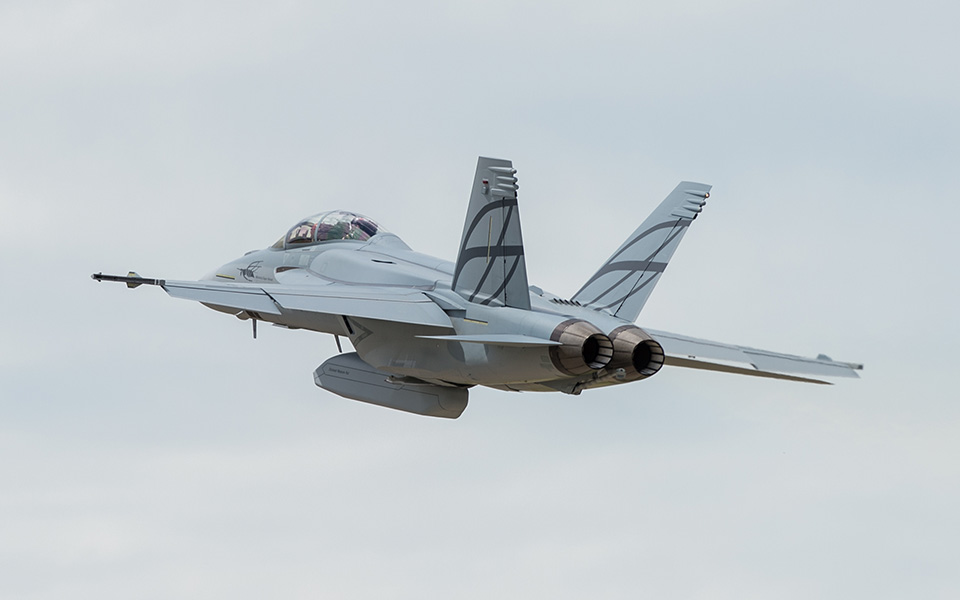A long-standing dispute between beleaguered Canadian manufacturer Bombardier and American aerospace giant Boeing has escalated with Prime Minister Justin Trudeau threatening on Tuesday to axe a multibillion-dollar fighter jet deal if Boeing doesn’t drop legal actions against Bombardier.The war of words has intensified since Boeing first brought two trade complaints against Bombardier in April, accusing the Quebec-based company of marketing its C-Series planes in the United States for less than fair market value, thanks to support from the Canadian government and elsewhere.“Boeing is trying very hard to put thousands of Canadian aerospace workers out of work,” Trudeau told reporters on Tuesday morning, adding, “We are going to push back.”The comments come after Trudeau threatened to ditch plans to procure a fleet of fighter jets from the American defence giant.“We won’t do business with a company that’s busy trying to sue us,” Trudeau said at a press conference with U.K. Prime Minister Theresa May on Monday.The complaints were filed by Boeing in April. Both the United States International Trade Commission and the Department of Commerce are in the midst of investigations.Boeing says Bombardier has received more than $4.6 billion in financial aid or investment from taxpayers in Canada and the United Kingdom (the Quebec company has a base of operations in Northern Ireland) which allows it to win American contracts at cut-rate prices, unfairly elbowing out Illinois-based Boeing.Bombardier has fired back in the media. “It is pure hypocrisy for Boeing to say that the C-Series launch pricing is a ‘violation of global trade law’ when Boeing does the same for its new aircraft,” the Canadian company said it a statement on Monday.Boeing was initially in Trudeau’s good graces, as the prime minister cancelled plans to purchase Lockheed-Martin’s F-35 fifth-generation fighter jet, opting to reboot the procurement process — putting Boeing back in the running to replace Canada’s aging fleet of CF-18 jets.Read more: Canada can’t make up its mind on buying F-35sDefence Minister Harjit Singh Sajjan even began talks with the Pentagon about renting or buying a smaller contingent of the F-18 Super Hornets through a sole-sourced contract to supply the Canadian Air Force on an interim basis until Ottawa can decide on which plane ought to supply the military long-term.Now Trudeau is openly talking about changing his plans, in a move he says is designed to put pressure on Boeing over the trade complaints.Speaking to reporters in French on Tuesday, the prime minister said Boeing’s trade complaints were “against Canadian interests.”May, the U.K. prime minister, has backed Trudeau in the trade dispute, raising the issue with with Trump. “I want to see a resolution that protects those [Bombardier] jobs in Northern Ireland,” she told reporters in Ottawa. Ottawa and Boeing had been at the negotiating table in recent weeks, but talks broke down as Boeing walked away from the table, according to the prime minister.Bombardier has needed repeated cash infusions from Canadian taxpayers in recent years as production delays and cost overruns have beset a variety of its projects, including the C-Series.The C-Series plane was hailed as a way for Bombardier to turn around its ailing business and boost exports world-wide. If it is slapped with new duties in the U.S. market, those plans will likely be severely hobbled.The C-Series program is set to boost Quebec’s exports in the coming years, which offers some explanation for Trudeau’s aggressive rhetoric on the file. His party also enjoys high support in the province, popularity he’s hoping to capitalize on in the next election.But Ottawa is also facing increasing pressure from President Donald Trump’s administration, which has already filed complaints against Canada’s softwood lumber industry, alleging government subsidies give Canadian exporters an unfair advantage in the United States.
Ottawa and Boeing had been at the negotiating table in recent weeks, but talks broke down as Boeing walked away from the table, according to the prime minister.Bombardier has needed repeated cash infusions from Canadian taxpayers in recent years as production delays and cost overruns have beset a variety of its projects, including the C-Series.The C-Series plane was hailed as a way for Bombardier to turn around its ailing business and boost exports world-wide. If it is slapped with new duties in the U.S. market, those plans will likely be severely hobbled.The C-Series program is set to boost Quebec’s exports in the coming years, which offers some explanation for Trudeau’s aggressive rhetoric on the file. His party also enjoys high support in the province, popularity he’s hoping to capitalize on in the next election.But Ottawa is also facing increasing pressure from President Donald Trump’s administration, which has already filed complaints against Canada’s softwood lumber industry, alleging government subsidies give Canadian exporters an unfair advantage in the United States.
Advertisement
Boeing has, indeed, received billions in subsidies and support from the American government and Pentagon.In June, the U.S. trade commission found there were grounds to believe Canada`s Bombardier enjoyed a subsidy for the cost of its C-Series planes to the tune of nearly 80 percent of development costs. The Commerce Department’s initial findings are due next week and final determinations from both U.S. government entities are expected later this fall.“We are going to push back.”
Advertisement

